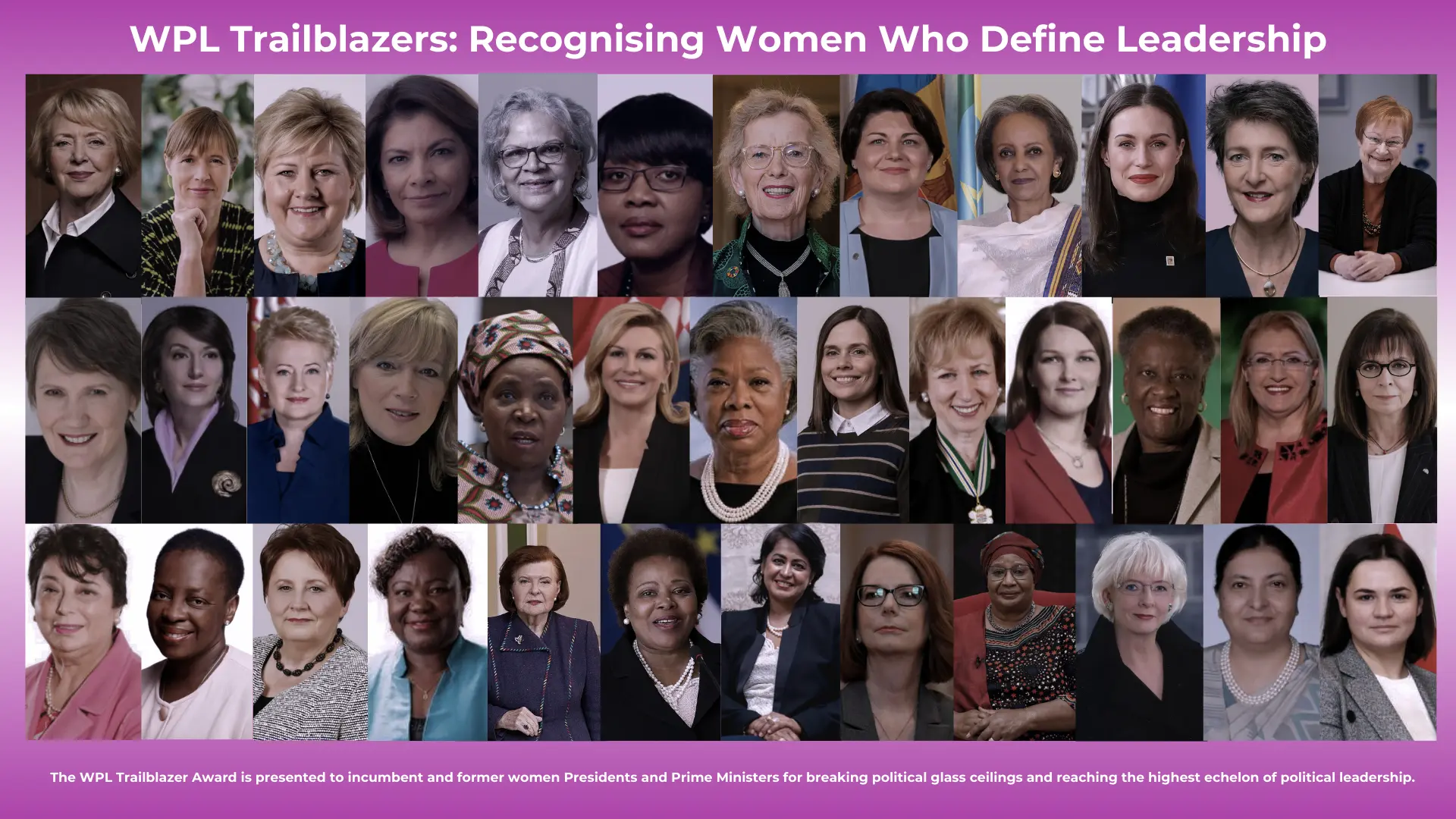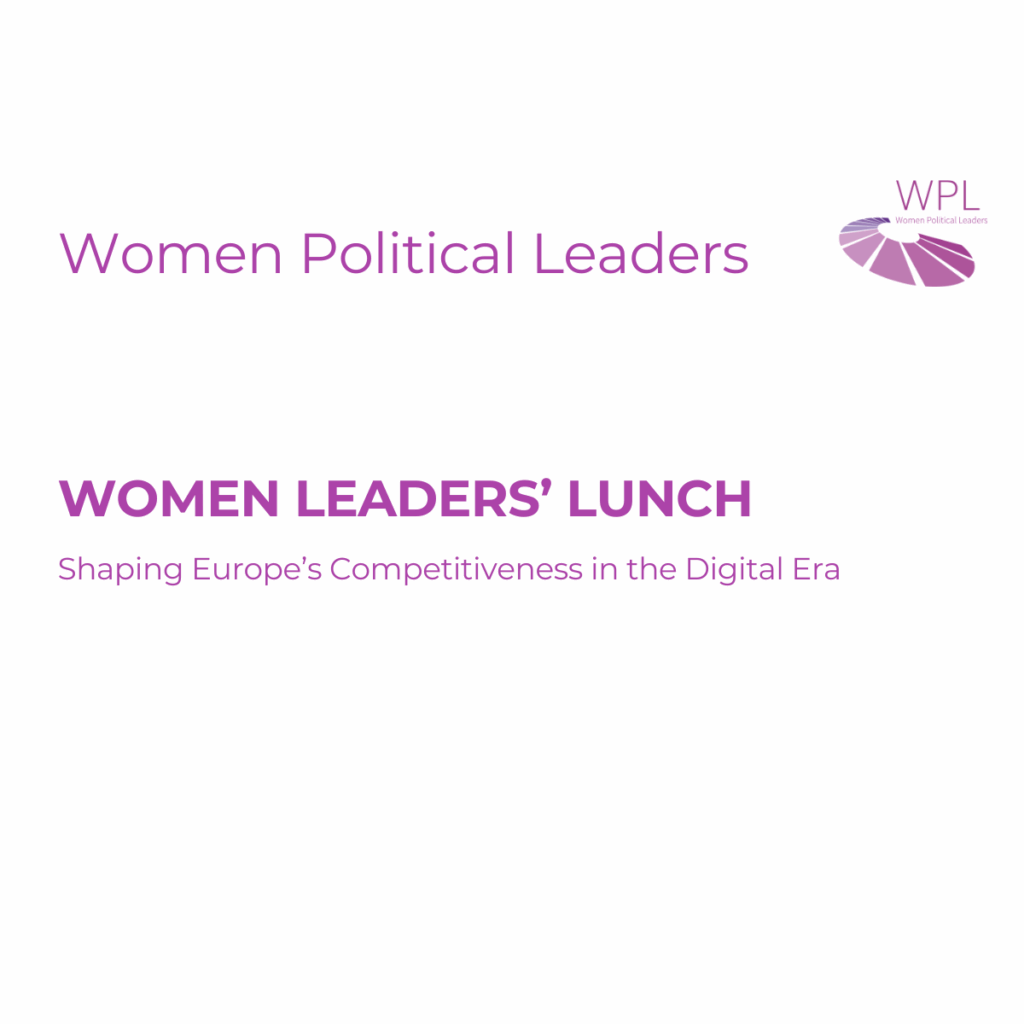WPL Summit 2024
Democracy for the 21st century

Women political leaders: Advancing society
Read moreConferences
WPL Summits


 Summits
SummitsWPL Summit 2023
News

Hon.Neema Lugangira Appointed as Secretary General of Women Political Leaders (WPL)
Brussels, 12th August 2025 — Women Political Leaders (WPL) is delighted to announce the appointment of Honourable Neema Lugangira (MP) of Tanzania as the organisation’s… Read more...
WPL Call to Action: Her Health, Our Priority: A Demand for Equity
Women’s health is not just a woman’s issue; it’s a global imperative. Women Political Leaders (WPL) urges global leaders to join us in demanding and… Read more...
WPL Call to Action – Stop Sexual Violence in Conflict Zones
On the occasion of the 60th Munich Security Conference, Women Political Leaders (WPL) and Munich Security Conference (MSC) calls on international leadership to take decisive… Read more...




We must do more to keep the promise of the Sustainable Development Goals. The SDGs are the best frame to address our most pressing challenges—from ending hunger and poverty to accelerating climate action and ensuring quality education.
Amina J. Mohammed, Deputy Secretary-General, United Nations
I am delighted to speak alongside you today at the annual Women Political Leaders Summit about the crucial issue of female leadership […] No society will be able to rise to today’s challenges if it only uses half of its living resources, of its force, of its ability to promote, in both public service and companies, diversity, which is the cornerstone of innovation.
Emmanuel Macron, President of the French Republic
So how can we make women in leadership the new normal? First, gender equality is an urgent imperative, it is at the heart of recovering better from the pandemic and achieving the Sustainable Development Goals.
Michelle Bachelet, United Nations High Commissioner for Human Rights, United Nations
We now need to make sure that our parliaments are not on global average 25% [women]. We need to make sure that our local governments do not have a limited number of women. We want to make sure that our cabinets do not have an underrepresentation of women. We need you to take action, and we need you to take this action NOW.
Phumzile Mlambo-Ngcuka, UN Under-Secretary-General Executive Director, UN Women
We must get rid of the biases which hold women back from taking on leadership roles. The Reykjavik Index for Leadership, commissioned each year by Women Political Leaders, shows that public attitudes across many countries are still far from universally positive about women in leadership.
Helen Clark, Chair of the WPL Board; UNDP Administrator (2009-2017) & Prime Minister of New Zealand (1999-2008)
Women tend to have a more inclusive leadership style than their male counterparts. A recent study showed that female leaders were more effective during the pandemic, performed better under pressure and rated more positively on most of the competences involving interpersonal skills. It is exactly those skills that are needed to rebuild our economies in a more equitable and inclusive way.
Christine Lagarde, President of the European Central Bank
We are gradually increasing the number of women in the military and also in political leadership roles. We know that when we bring different perspectives to the debate, we simply make better decisions.
Jens Stoltenberg, Secretary General, NATO
The pandemic is also a stark reminder that while women make up seventy percent of the health workforce, only an estimated 25% of leadership roles are held by women. To respond to these challenges, WHO launched the Gender Equal Health and Care Workforce Initiative […] to increase the proportion of women in health and in care leadership
Tedros Adhanom Ghebreyesus, Director-General, World Health Organization (WHO)
Women already hold more than 40% of the top positions in the European Commission. I have set a target of 50% by the end of 2024. Because our democracies are stronger when women are involved as equals.
Ursula von der Leyen, President of The European Commission
In response to the pandemic, women leaders have often invested in social services, have placed emphasis on strong welfare sectors and strong institutional capacity, which provides the right context for women leaders to exercise effective leadership. There is still a need, however, to promote women’s participation in Covid-19 decision-making bodies.
Anita Bhatia, Assistant-Secretary-General & UN Women’s Deputy Executive Director for Resource Management, UN System Coordination, Sustainability and Partnerships
To recover we need to allocate significant budgets to ensure the rights of the most vulnerable groups are at the centre of programme and policies. The key groups – which represent the majority of the population are women and young people. This requires true, compassionate, and inclusive leadership…
Aminata Touré, President of Economic Council (2019-2020), Prime Minister (2013-2014), WPL Global Ambassador for Vaccination, Senegal
We must close the gender pay gap and raise the number of women in leadership positions. We need to strengthen our welfare systems to help the career progression of women.And we must bridge the gap between male and female representation in politics, supporting female leaders across the globe.
Mario Draghi, Prime Minister, Italy